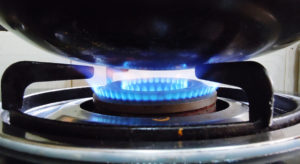LNG shippers smacked with low export demand, prices: EnergyQuest

Ray Robinson v Yordenis Ugas Pic:Getty
Australia’s liquefied natural gas (LNG) sector is grappling with lower export prices and patchy demand from North Asian economies weakened by the COVID-19 pandemic, said advisory firm Energy Quest in its latest snapshot report of the industry.
A total of 85 LNG cargoes were shipped from Australia in June, equivalent to 5.9 million tonnes, down on May’s shipments of 93 cargoes for 6.4 million tonnes.
Energy Quest said its vessel tracking data showed that out of the 85 Australian LNG cargoes shipped in June, “33 cargoes were delayed by sitting at anchorage or steaming in circles prior to reaching their destination”.
“However, delays appear to be reducing with nine delayed cargoes still to offload as at July 11,” said EnergyQuest in its report.
Gas prices
Spot prices for Australian LNG cargoes were trading at $US2.15/million British thermal units at the end of June.
This is close to their historic low of just under $US2/MMBtu earlier this year, and way down from their recent peak of $US11/MMBtu in September 2018, according to market data.
LNG exports are still a big revenue earner for Australia, pulling in $47.9bn in the 2020 financial year, and Australian LNG producers shipped 79.4 million t in the year period, said Energy Quest.
The main customer countries for Australian LNG exports in the 2020 financial year were Japan at 30.2 million t, up 12 per cent on year, China at 29.3 million t, up 7 per cent on year, and South Korea at 8.8 million t, up 12 per cent on-year.
Two markets
In an investor update this week, Queensland-focused gas explorer State Gas (ASX:GAS) said it was a tale of two markets for Australian gas.
One the export side, Asia’s demand for LNG is growing, while demand for oil was declining.
“Asian LNG customers are less affected by [the] pandemic,” State Gas said.
Adding that it expected the present linkage between oil and gas prices to eventually breakdown, “if new LNG is required in [an] era of low oil prices”.
On the domestic side, State Gas said it expects the home gas market to remain tight to 2023 as international demand rises and LNG projects are delayed on low market prices.
Related Topics

UNLOCK INSIGHTS
Discover the untold stories of emerging ASX stocks.
Daily news and expert analysis, it's free to subscribe.
By proceeding, you confirm you understand that we handle personal information in accordance with our Privacy Policy.








